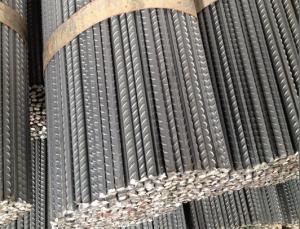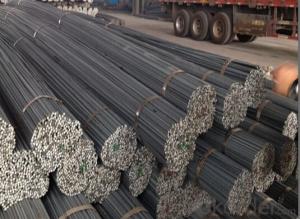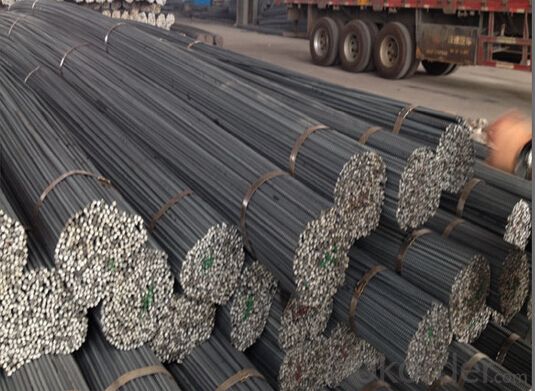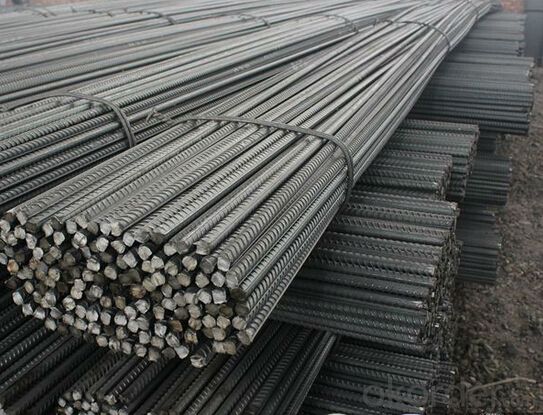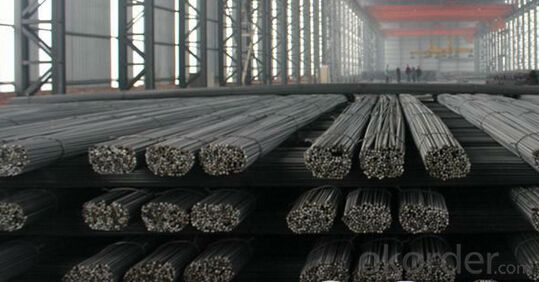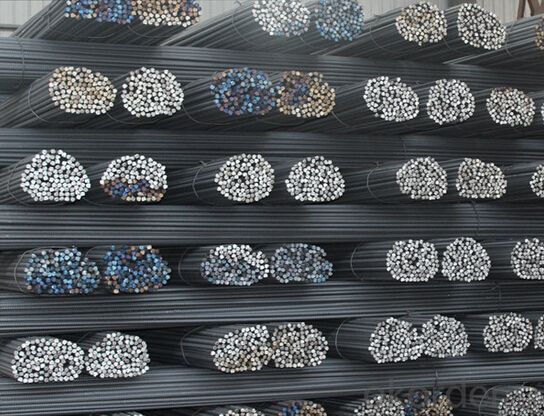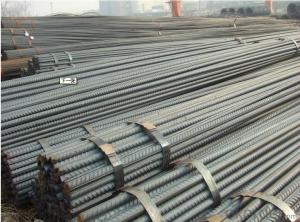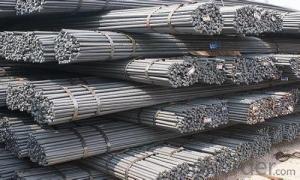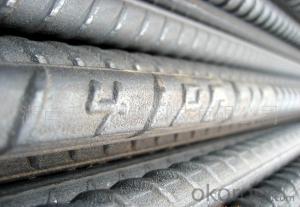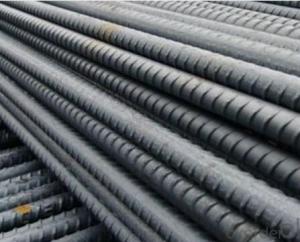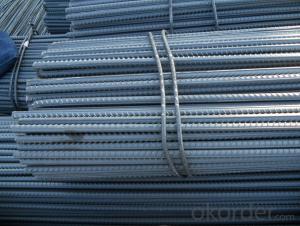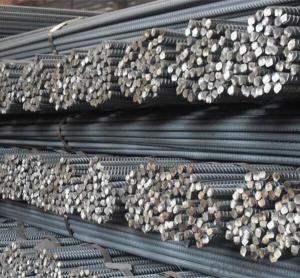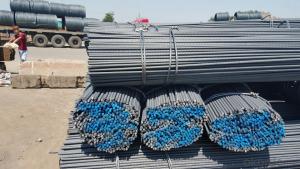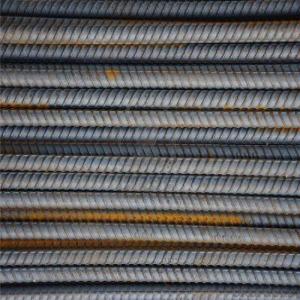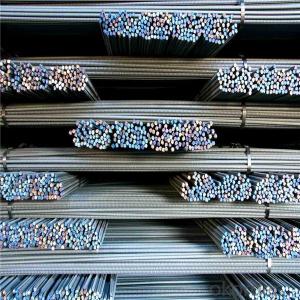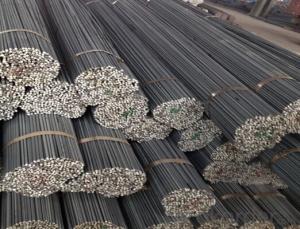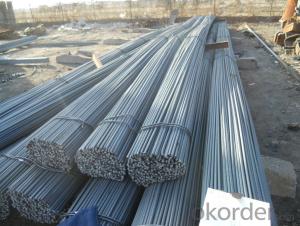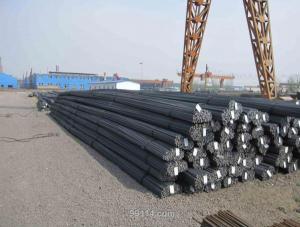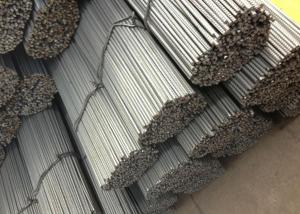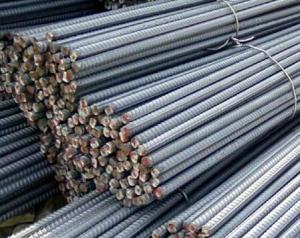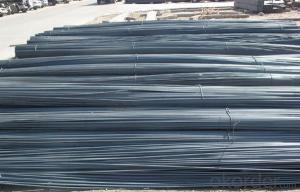ASTM A615 Gr 60 8mm 10mm 12mm High Quality Steel Rebar
- Loading Port:
- Tianjin
- Payment Terms:
- TT OR LC
- Min Order Qty:
- 100 m.t.
- Supply Capability:
- 10000 m.t./month
OKorder Service Pledge
Quality Product, Order Online Tracking, Timely Delivery
OKorder Financial Service
Credit Rating, Credit Services, Credit Purchasing
You Might Also Like
Specification
Standard:
AISI,ASTM,JIS,GB,BS,DIN,API,EN
Technique:
Hot Rolled,Cold Rolled,Cold Drawn,ERW,Forged,Saw,Extruded,EFW,Spring
Shape:
U Channel,Square,C Channel,Hexagonal,Round,Rectangular,Oval,LTZ
Surface Treatment:
Galvanized,Coated,Copper Coated,Color Coated,Oiled,Dry,Chromed Passivation,Polished,Bright,Black,PVDF Coated
Steel Grade:
Q195,Q215,Q235,Q215B,Q235B,RHB335,HRB400,200 Series,300 Series,400 Series,600 Series,SS400-SS490,10#,20#,A53(A,B)
Certification:
ISO,SGS,BV,IBR,RoHS,CE,API,BSI,UL
Thickness:
6-34mm
Width:
6-34mm
Length:
12m
Outer Diameter:
6-34mm
Net Weight:
10kg
Packaging:
seaworthy packaging
ASTM A615 Gr 60 8mm 10mm 12mm High Quality Steel Rebar
Details of the ASTM A615 Gr 60 8mm 10mm 12mm High Quality Steel Rebar
| Standard & Grade: | GB1499-98 : HRB335,HRB400,HRB500 |
| BS4449-1997 : GR460,GR500 | |
| CAN/CSA-G30.18-M92 : 400W | |
| ASTM A615 : Gr.40, Gr.60 | |
| Diameter: | 6mm;8mm;10mm;12mm;14mm;16mm;18mm;20mm;22mm;25mm;28mm;30mm;32mm;35mm;40mm |
| Length: | 6m,9m,12m |
| Packing: | Bundle packing |
| Origin: | China |
| Application: | Construction,Road,Machinery processing,Welding fields. |
| Delivery time: | 10-25 days |
| Shipment: | By bulk vessel or Container |
| Documents: | Mill Test Certificate,Commercial Invoice,Packing List,Certificate of Origin |
Company Introduction of the ASTM A615 Gr 60 8mm 10mm 12mm High Quality Steel Rebar
CNBM International Corporation is the most import and export platform of CNBM group(China National Building Material Group Corporation) ,which is a state-owned enterprise, ranked in 270th of Fortune Global 500 in 2015.
With its advantages, CNBM International are mainly concentrate on Cement, Glass, Iron and Steel, Ceramics industries and devotes herself for supplying high quality series of refractories as well as technical consultancies and logistics solution.
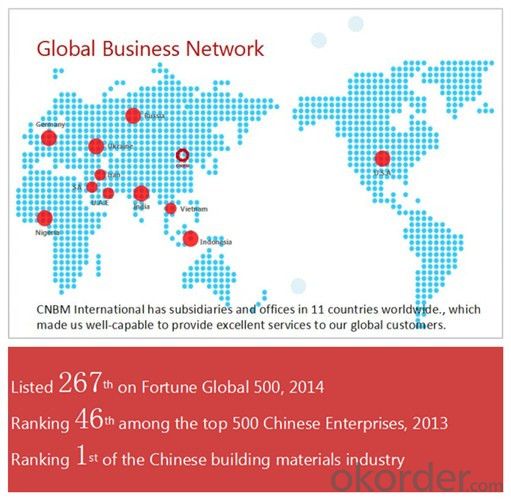
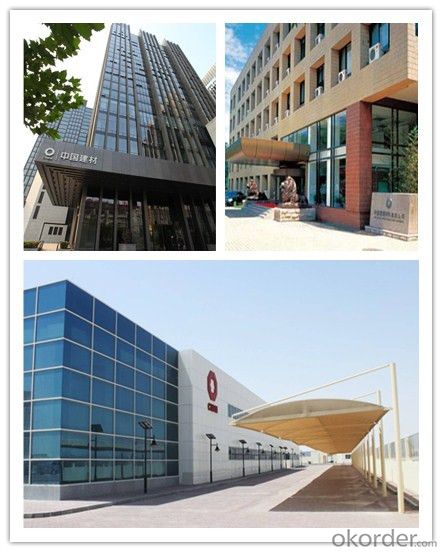
Packaging & Delivery of the ASTM A615 Gr 60 8mm 10mm 12mm High Quality Steel Rebar
| Packaging Detail | Sea worthy packing /as per customer's packing instruction |
| Delivery Detail | 15 ~ 40 days after receiving the deposit |
FAQ
| Are you a trading company or manufacturer? | Manufacturer |
| What’s the MOQ? | 1000m2 |
| What’s your delivery time? | 15-20 days after downpayment received |
| Do you Accept OEM service? | Yes |
| what’s your delivery terms? | FOB/CFR/CIF |
| What's the Payment Terms? | 30% as deposit,70% before shipment by T/T |
| Western Union acceptable for small amount. | |
| L/C acceptable for large amount. | |
| Scrow ,Paybal,Alipay are also ok | |
| Why choose us? | Chose happens because of quality, then price, We can give you both. Additionally, we can also offer professional products inquiry, products knowledge train (for agents), smooth goods delivery, excellent customer solution proposals. |
| What's your available port of Shipment? | Main Port, China |
| What’s your featured services? | Our service formula: good quality+ good price+ good service=customer's trust |
| Where are your Market? | Covering more than 160 countries in the world |
- Q: What is the role of steel rebars in the construction of highway overpasses?
- Steel rebars play a crucial role in the construction of highway overpasses as they provide reinforcement and strength to the concrete structures. Rebars are used to reinforce the concrete, preventing cracks and improving its resistance to tension and bending forces. This reinforcement ensures the durability, stability, and overall safety of the highway overpasses, allowing them to withstand heavy loads and harsh external conditions.
- Q: How are steel rebars measured and cut on construction sites?
- Steel rebars are typically measured and cut on construction sites using measuring tapes, chalk lines, and portable cutting tools such as rebar cutters or angle grinders. The rebars are accurately measured according to the required dimensions, marked with chalk lines, and then cut using the appropriate cutting tool to ensure precise lengths and shapes for construction purposes.
- Q: How do steel rebars improve the ductility of a structure?
- Steel rebars improve the ductility of a structure by providing reinforcement and enhancing its ability to withstand tensile forces. The presence of rebars within concrete or other structural materials allows them to better absorb and distribute stress, preventing brittle failure and promoting flexural strength.
- Q: What are the different types of steel rebars available?
- There are several types of steel rebars available, including standard carbon steel rebars, epoxy-coated rebars, galvanized rebars, stainless steel rebars, and composite rebars.
- Q: What is the lifespan of steel rebars in different environments?
- The lifespan of steel rebars can vary depending on the environment in which they are employed. Typically, steel rebars are highly durable and can last for a considerable period. Nevertheless, the longevity of these materials can be affected by different environmental conditions. In a dry and non-corrosive setting, such as indoors or in a well-maintained building, steel rebars can endure for several decades or even longer. The absence of moisture and corrosive substances aids in maintaining the steel's integrity, minimizing the risk of deterioration. In a marine or coastal environment, where continual exposure to saltwater and high humidity occurs, the lifespan of steel rebars may be reduced. The corrosive properties of saltwater can expedite the corrosion process, potentially shortening the rebars' lifespan. In such scenarios, special coatings or treatments can be applied to the steel rebars to enhance their resistance to corrosion and prolong their lifespan. Similarly, steel rebars employed in areas with elevated levels of air pollution or industrial emissions may also experience accelerated corrosion. Airborne pollutants, such as sulfur dioxide or sulfuric acid, can interact with the steel and result in rust formation. Regular maintenance and cleaning of the rebars can help mitigate the impact of these corrosive substances and extend their lifespan. It is crucial to note that the quality of the steel rebars and construction practices also significantly influence their lifespan. The use of high-quality rebars that meet industry standards and adherence to proper installation techniques can greatly enhance their durability and longevity. In conclusion, while steel rebars generally have a long lifespan, the specific environment in which they are utilized will determine how effectively they serve their purpose. By considering environmental factors and implementing appropriate corrosion prevention measures, the lifespan of steel rebars can be maximized, ensuring the safety and durability of the structures in which they are incorporated.
- Q: What is the role of steel rebars in tunnel shaft construction?
- The role of steel rebars in tunnel shaft construction is to provide strength and reinforcement to the concrete structure. These rebars are embedded within the concrete to enhance its tensile strength and prevent cracks or failures in the tunnel shaft. They help distribute and transfer loads, ensuring the structural integrity and durability of the tunnel shaft.
- Q: What is the effect of moisture content on the strength of steel rebars?
- The moisture content of steel rebars can have a detrimental effect on their strength. When exposed to moisture, steel rebars can corrode, leading to a reduction in their strength and structural integrity. Corrosion causes the formation of rust, which weakens the steel rebars by gradually deteriorating their surface and compromising their load-bearing capacity. Therefore, it is essential to prevent moisture from coming into contact with steel rebars to maintain their strength and durability in construction projects.
- Q: What are the different types of steel rebars used in railway bridges?
- There are several types of steel rebars used in railway bridges, each with their own specific characteristics and applications. Some of the common types include: 1. Carbon Steel Rebars: These are the most commonly used rebars in railway bridges. They are made of carbon steel and provide high tensile strength and excellent durability. Carbon steel rebars can withstand heavy loads and are suitable for various railway bridge applications. 2. Stainless Steel Rebars: Stainless steel rebars are highly resistant to corrosion and are used in railway bridges located in coastal or high humidity areas. They offer excellent long-term performance and are particularly beneficial in preventing rust and deterioration caused by exposure to moisture and salt. 3. Galvanized Steel Rebars: Galvanized steel rebars are coated with a layer of zinc to enhance their corrosion resistance. They are commonly used in railway bridges in areas with aggressive environmental conditions, such as industrial zones or areas prone to chemical exposure. The zinc coating provides an additional protective barrier, increasing the rebars' lifespan. 4. Epoxy-Coated Steel Rebars: Epoxy-coated rebars are coated with a layer of epoxy resin, providing enhanced corrosion protection. They are commonly used in railway bridges exposed to harsh environments, such as bridges located near chemical plants or in heavily polluted areas. The epoxy coating acts as a barrier against corrosion and extends the rebars' service life. 5. Prestressed Steel Rebars: Prestressed steel rebars are designed to withstand high tension loads. They are used in railway bridges that require additional strength and stability, particularly in areas with heavy train traffic or where long spans need to be covered. Prestressed rebars are tensioned before the concrete is poured, allowing them to counteract the tensile forces and prevent cracking or deformation. These are just a few examples of the different types of steel rebars used in railway bridges. The choice of rebar type depends on various factors, including the environmental conditions, load requirements, and design specifications of the bridge. It is essential to select the appropriate type of rebar to ensure the structural integrity and longevity of railway bridges.
- Q: Can steel rebars be replaced with other reinforcement materials?
- Yes, steel rebars can be replaced with other reinforcement materials such as fiberglass, carbon fiber, or composite bars. These alternative materials offer advantages like higher tensile strength, corrosion resistance, and lighter weight. However, the choice of replacement material depends on the specific requirements of the construction project and should be evaluated carefully to ensure structural integrity and compliance with relevant codes and standards.
- Q: How are steel rebars used in the construction of wastewater treatment plants?
- Steel rebars are used in the construction of wastewater treatment plants to reinforce the concrete structures, such as tanks and basins, that are essential for storing and treating wastewater. The rebars provide strength and stability to these structures, ensuring they can withstand the weight of the water and the various chemicals used in the treatment process. Additionally, the rebars help to prevent cracking and structural failure, ensuring the longevity and reliability of the wastewater treatment plant.
Send your message to us
ASTM A615 Gr 60 8mm 10mm 12mm High Quality Steel Rebar
- Loading Port:
- Tianjin
- Payment Terms:
- TT OR LC
- Min Order Qty:
- 100 m.t.
- Supply Capability:
- 10000 m.t./month
OKorder Service Pledge
Quality Product, Order Online Tracking, Timely Delivery
OKorder Financial Service
Credit Rating, Credit Services, Credit Purchasing
Similar products
Hot products
Hot Searches
Related keywords
